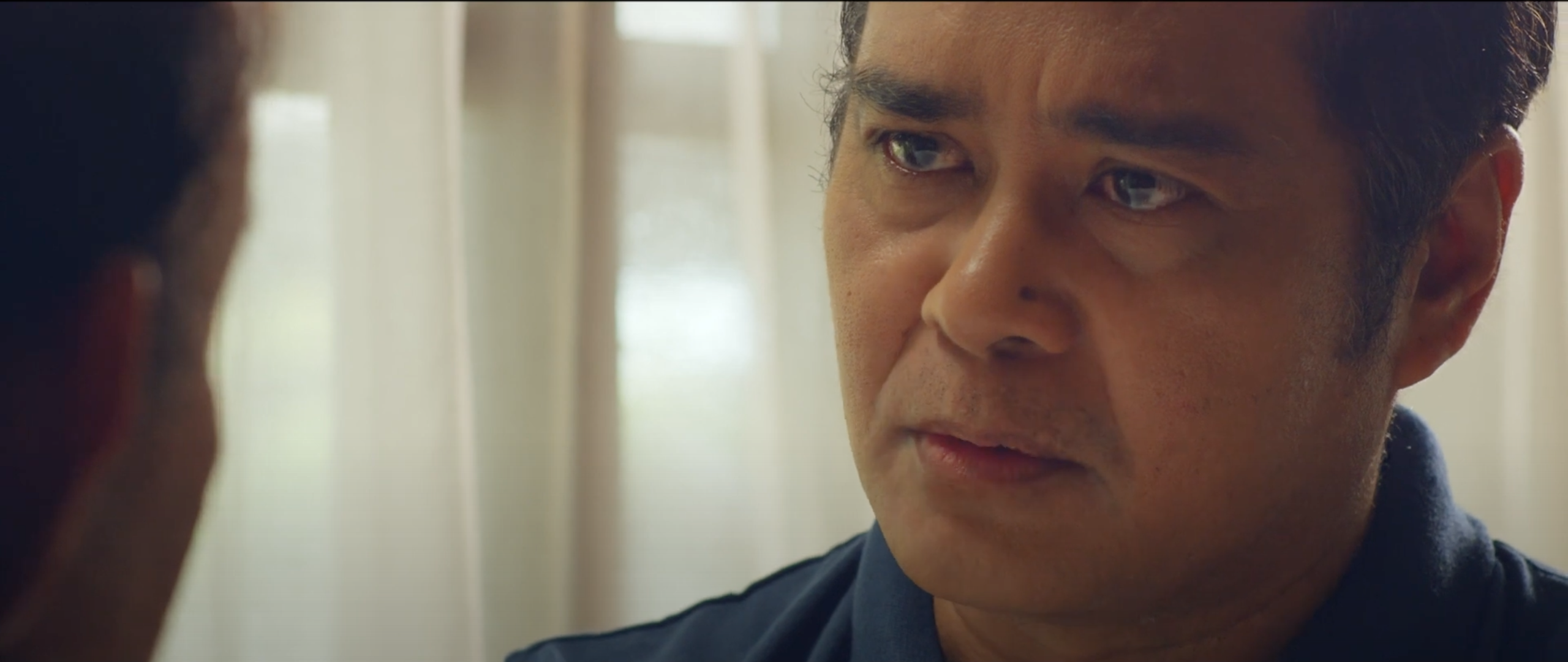
A MIRACLE’S reality relies on the faith of those who seek it. Many will testify that “faith” is the prime mover of miracles— mere lucky coincidences without belief. Even so, there is still hope for their existence. To people who have encountered these, a question arises from within: “what causes these to occur?”
The 2020 Metro Manila Film Festival entry, Suarez: The Healing Priest, tells Fr. Fernando Suarez’s life to answer the question. Under Joven Tan’s direction, the film narrates the life of a controversial priest who claims to have the gift of healing.
Fr. Fernando Suarez, played by multi-awarded actor John Arcilla, was first reported to have healing powers after “resurrecting” a dead woman in Canada. Since then, people who sought healing flocked churches where Suarez could be found.
The story behind the healing priest’s almost-perfect image is told at a slow pace, backed with scenes of the past mostly dipped in sepia. Flashbacks are made noticeable by being enclosed in faded frame edges. In these scenes, there was a heavy emphasis on Fr. Suarez’s early years, especially in how he realizes his calling.
The storyline is told in a non-chronological order, with a series of flashbacks alternatively jumping from past to present. It is narrated by a reporter (Marlo Mortel), who was ordered by his boss (Alice Dixon) to unravel more of Suarez’s story and his credibility.
Viewers witness how Suarez came to harness and rightfully apply his healing energy, even if shown to have been unacknowledged in his early years. Jin Macapagal, who plays the younger Suarez, performs his role well as he exhibits uncertainty and compassion with genuine expressions.
His excellent performance is exemplified in a scene wherein he willingly approaches a cripple (Gina Pareño), who miraculously heals after he prays over her. Confusion is evident on Macapagal’s face whenever random instances of divinity show up, like the sudden flashes of Jesus’ image.
Macapagal successfully shows how accepting a calling is not easy; this is further given weight in a family dining scene. Here, he finally breaks the news of entering the priesthood despite already being a chemical engineer. Suarez’s father (Richard Quan) expresses disappointment and contributes much to the scene’s heavy atmosphere. Despite the rejection, Suarez’s life plans take a general reformation as he still pushes through with God’s calling.
The film is able to shed light on how human Fr. Suarez also was. Though granted with divine ability, he is well-portrayed by Arcilla as a normal person, who does not shy away from revealing his weaknesses. This is showcased when he is both tearful and subtly enraged in a conversation with Bishop Protector Palang (Dante Rivero) regarding the controversies that hounded Suarez.
However, the film is not flawless. There is a lack of firm connections from one scene to another as transitions are often abrupt. It is also unclear how a scene suddenly comes into being or what happens next after a scene is cut short. An example of this would be when Suarez is sent to rehabilitation. For the sake of inserting mysticism, it appears as a sudden insertion of an unelaborated story not entirely related to the scene following it.
Although the dramatic score improves the story’s execution, some lines feel obviously scripted or poorly executed. An example of this is the scene between Fr. Jeff (Troy Montero) and two aspiring priests. Here, Montero unnaturally provides information about Suarez to the two, who either have exaggerated reactions or a lack thereof. This delivery makes the scenes uncompelling to viewers as it gives an impression that the actors are spoon-feeding information.
Nevertheless, the film certainly addresses and reveals essential lessons and issues, like the politics of faith and its effect on so-called believers. In Suarez’s journey, it is evident how people are quick to exploit the Church’s generosity, as in the scene of Ilin’s residents subtly abusing Suarez’s position and financial assistance.
Aside from that, the media uses Suarez’s controversies to acquire higher ratings and income. The bishop’s (Joonee Gamboa) command also shows how the influence of the clergy’s hierarchy can control image and obedience over charity.
The film successfully delivers how having and renewing “faith” can be more about sowing benefits, rather than being a sacred thing that binds people with God. As its purpose can deteriorate, one’s faith can become less of a contributor to spiritual growth and more about merely hoping for “blessings.”
Overall, Suarez: The Healing Priest accomplishes to explore the concept of faith, showing how miracles protrude from strengthening it despite grave circumstances. Furthermore, it emphasizes the reminder that God heals— not Suarez nor any other instrument.
The timely message of healing and hope is tightly bonded in the film, which is uplifting amidst the ongoing crisis. It is a story of how faith allows one to see beyond natural explanations and hope for things unseen. F



